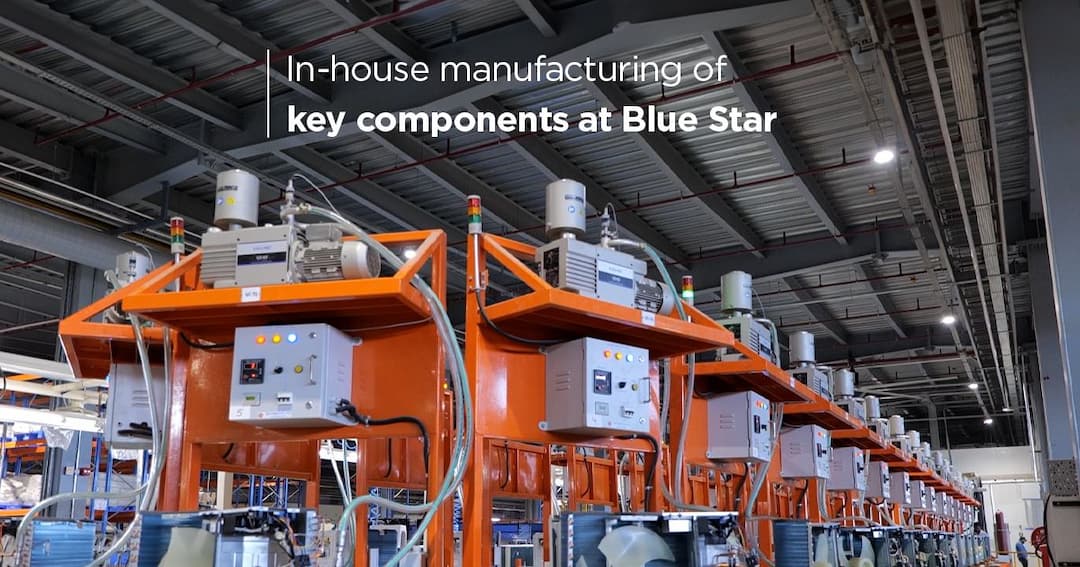Heat Pump Market Trends and Opportunities for HVAC Manufacturers

In the evolving landscape of sustainable heating and cooling, heat pumps have emerged as a key technology, providing both environmental and economic benefits. As global efforts to reduce carbon emissions intensify, the heat pump market is experiencing dynamic changes. Despite a recent dip in sales following significant growth, the overall trend indicates a robust market poised for future expansion. This blog aims to explore the latest trends shaping the heat pump market, the opportunities these trends present, and how stakeholders can leverage these developments. We will discuss the increasing demand for energy-efficient solutions, government incentives, technological advancements, the focus on decarbonization, and market diversification. By providing a comprehensive overview, we aim to inform and engage residential and light commercial users about the promising future of heat pumps.
Introduction
The global heat pump market, while experiencing a slight slowdown in early 2024, maintains a positive long-term outlook. Fueled by rising energy costs, environmental concerns, and government initiatives promoting energy efficiency and clean heating, Europe and North America remain at the forefront. This presents exciting opportunities for manufacturers, installers, and service providers in this burgeoning sector. This blog explores the latest trends shaping the heat pump market and the opportunities they present, helping you understand how these changes can benefit your home or business. Rising Demand for Energy-Efficient Heating and Cooling With climate change and energy sustainability at the forefront, there's a surge in demand for energy-efficient HVAC (Heating, Ventilation, and Air Conditioning) solutions. Heat pumps, which extract heat from the air, water, or ground, offer a highly efficient alternative to traditional heating systems. They operate by moving heat rather than generating it, resulting in lower energy bills and reduced carbon footprints for both homeowners and businesses. Adopting heat pumps means saving money and contributing to a greener planet.
Government Incentives and Policies
Government incentives and policies are pivotal in promoting heat pump adoption. Financial incentives, tax credits, and subsidies in many countries lower upfront costs, making renewable heating technologies like heat pumps more accessible. Initiatives such as the UK's Renewable Heat Incentive (RHI) and similar programs worldwide support the shift to sustainable heating solutions, encouraging long-term energy savings and environmental benefits.
Technological Advancements
Technological advancements are expanding the heat pump market and enhancing performance. Innovations like variable-speed compressors, smart controls, and improved heat exchanger designs boost efficiency and reliability. Variable-speed compressors adjust output to match demand, improving efficiency and reducing wear. Smart controls enable remote optimization, integrating with home automation systems for added convenience and energy savings. These advancements make heat pumps a smart investment for homes and businesses.
Focus on Decarbonization and Electrification
The global drive for decarbonization and electrification is propelling heat pump adoption to reduce fossil fuel dependence. As electricity generation increasingly incorporates renewable energy, the environmental benefits of heat pumps are amplified. By using electricity instead of burning fossil fuels, heat pumps significantly lower greenhouse gas emissions, supporting international climate goals like the Paris Agreement. Choosing heat pumps means actively participating in the global effort to combat climate change.
Market Trends in Europe
Policy Powerhouse: The European Union (EU) has set ambitious goals for reducing greenhouse gas emissions and increasing renewable energy use. Policies like the Renewable Energy Directive (RED II) and the Energy Efficiency Directive (EED) significantly drive demand for heat pumps as a clean and efficient heating solution. These policies create a favourable environment for the growth of the heat pump market, ensuring long-term sustainability and energy efficiency.
Renovation Revolution: The EU's Renovation Wave initiative aims to renovate millions of buildings by 2030, with a strong focus on energy efficiency. Heat pumps are a key technology in this effort, as they can significantly reduce energy consumption in existing buildings. This initiative not only boosts the demand for heat pumps but also supports the broader goal of achieving a low-carbon economy.
Natural Gas Concerns: The ongoing geopolitical situation has highlighted Europe's dependence on imported natural gas. Heat pumps offer a way to reduce this dependence and improve energy security. By transitioning to heat pumps, Europe can lessen its vulnerability to external energy supply disruptions and foster a more resilient and sustainable energy infrastructure.
Market Trends in North America
Growing Awareness: Consumer awareness of heat pumps is increasing in North America, driven by factors such as rising energy costs and media coverage of climate change. This growing awareness translates into higher demand for energy-efficient heating solutions, encouraging more homeowners and businesses to consider heat pumps as a viable option.
Cold Climate Breakthroughs: Technological advancements have led to the development of cold-climate heat pumps that can effectively heat homes even in very cold weather. This breakthrough is opening up new markets for heat pumps in North America, where harsh winters have traditionally been a barrier to adoption. These advanced heat pumps ensure reliable performance and energy savings, even in the coldest regions.
Government Incentives: Several North American governments are offering financial incentives for the installation of heat pumps. These incentives make heat pumps more affordable for homeowners, thereby accelerating market growth. For example, the extended and expanded tax credits in the US are expected to further stimulate heat pump sales in the coming years.
Major Developments in North America (2024)
New High-Efficiency Heat Pump Lines: Leading HVAC manufacturers launched new lines of high-efficiency heat pumps in 2024. These new products are designed to meet the growing demand for energy-efficient heating solutions. With improved efficiency and advanced features, these heat pumps offer superior performance and lower operating costs, appealing to a wide range of consumers.
Tax Credits Extended for Heat Pumps: The US government extended and expanded tax credits for heat pumps in January 2024. This policy change is expected to further stimulate heat pump sales in the coming years. By reducing the financial burden on consumers, these tax credits make heat pumps a more attractive and feasible option for heating and cooling needs.
Emerging Trends in the Global Heat Pump Market
Transition to Low-Carbon Heating and Cooling: The shift towards low-carbon heating and cooling is gaining momentum as more people recognize the impact of carbon emissions on climate change. Heat pumps, which emit significantly less carbon than traditional furnaces or boilers, are becoming the preferred choice. Government incentives and regulations further encourage this shift, helping to decarbonize buildings and reduce greenhouse gas emissions.
Enhancements in Energy Efficiency: Manufacturers are continuously working to enhance the energy efficiency of heat pumps to meet changing consumer demands and regulatory requirements. Advances in compressor technology, heat exchangers, refrigerants, and system controls are making heat pumps more efficient, helping users reduce energy consumption and costs.
Expansion of Heat Pump Applications: Beyond residential heating and cooling, heat pumps are finding applications in commercial buildings, industrial processes, and even agriculture. They are also being used in district heating and cooling systems, offering sustainable solutions for entire communities.
Hybrid Heat Pump Systems: These systems combine heat pumps with other energy sources, such as solar thermal or gas boilers, to optimize energy use and reduce costs. Hybrid systems can automatically switch between heat sources, providing a reliable and efficient heating solution.
Integration with Renewable Energy Sources: Heat pumps are increasingly being integrated with renewable energy sources like solar and wind power. This integration maximizes the use of renewable resources and enhances the environmental benefits of heat pumps, making them a key component in the move towards positive energy buildings.
Heat Pump Electrification: Electrifying heat pumps reduces dependency on fossil fuels, providing a greener alternative to conventional heating methods. As electricity generation becomes more decarbonized through renewable energy, the benefits of electrified heat pumps will continue to grow.
Smart Heat Pump Technologies: The incorporation of smart technologies and the Internet of Things (IoT) into heat pump systems allows for remote monitoring, control, and optimization of heating and cooling operations. Smart heat pumps can adjust temperature settings based on occupancy patterns, weather forecasts, and energy prices, offering greater convenience and efficiency.
Development of Next-Generation Refrigerants: Research and development are ongoing to create next-generation refrigerants with lower global warming and ozone depletion potential. These new refrigerants will make heat pumps even more environmentally friendly, ensuring they operate at peak efficiency while minimizing their environmental impact.
Conclusion
The global heat pump market is poised for significant growth, driven by technological advancements, government incentives, and a growing awareness of energy efficiency and environmental sustainability. Europe and North America are leading the charge, with robust policies and innovative solutions that support the adoption of heat pumps. As manufacturers, installers, and service providers navigate this dynamic landscape, the opportunities for growth and innovation are immense. Embracing these trends and leveraging the latest technologies will be key to capitalize on the heat pump market.

















